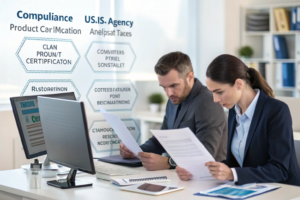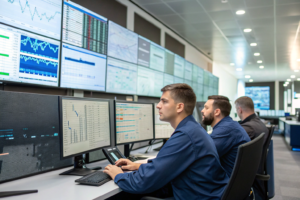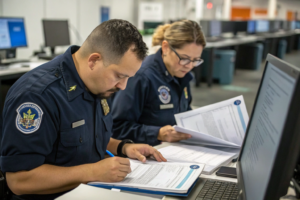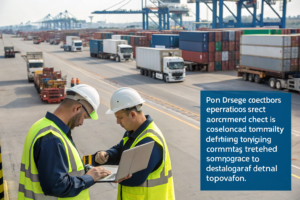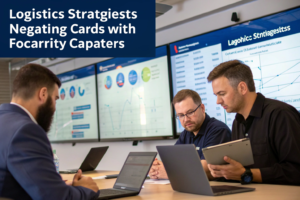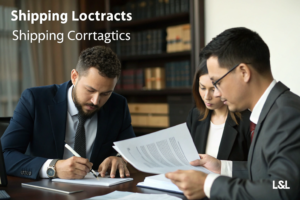Importing from China remains one of the most profitable opportunities for global buyers, but hidden costs often erode profit margins. Many business owners struggle with unclear quotations, unexpected tariffs, and extra fees added at different stages of the logistics chain. As a freight forwarder with years of experience, I understand how these obstacles can frustrate entrepreneurs like Ron in the U.S., who want transparent pricing and reliable shipping from factory to warehouse.
Yes, it is possible to import from China without hidden costs. By following a clear step-by-step process, working with trustworthy partners, and understanding how pricing is structured, businesses can ensure transparency and maintain strong profit margins.
I have helped countless clients in North America and Europe streamline their imports by breaking down each stage: supplier communication, freight booking, customs clearance, and delivery. With the right strategies, hidden costs can be avoided and predictable budgeting becomes a reality.
How to Identify Transparent Suppliers in China?
Hidden costs often begin at the supplier level. Many buyers are caught off guard by vague contracts, unclear packaging costs, or extra service charges.
The key to identifying transparent suppliers in China is to request detailed Proforma Invoices, verify certifications, and ensure Incoterms are clearly stated in all contracts.

Why are Proforma Invoices so important?
A Proforma Invoice is a document that outlines product cost, packaging, and logistics charges before shipment. It prevents misunderstandings and sets expectations upfront. Reputable suppliers will always provide this document. For example, Trade Finance Global explains how detailed invoices protect buyers. Alibaba Supplier Guidelines also encourage requesting Proforma Invoices.
How do Incoterms prevent hidden costs?
Incoterms clarify whether the seller or buyer is responsible for freight, insurance, and customs duties. Terms like FOB (Free on Board) or DDP (Delivered Duty Paid) eliminate confusion. The ICC (International Chamber of Commerce) provides standardized Incoterms globally. Export.gov also highlights their role in reducing disputes. A clearly stated Commercial Invoice paired with a Packing List ensures both parties know exactly what is being shipped and who bears responsibility.
What Are the Real Shipping Costs from China?
Many buyers only look at base freight rates but forget handling fees, fuel surcharges, and peak season premiums. These costs add up and often lead to budget overruns.
The real shipping costs from China include freight rates, terminal handling charges, documentation fees, customs clearance, and destination delivery charges.

Why do Terminal Handling Charges matter?
Terminal Handling Charges (THC) are fees collected at ports for loading, unloading, and container storage. They vary by port but can significantly affect final costs. According to World Shipping Council, THC is one of the most common overlooked costs. Maersk provides transparent THC details for each port. Importers moving cargo under FCL (Full Container Load) must calculate THC carefully, since charges depend on container weight, size, and port operations.
Are Fuel Surcharges always included?
No, Fuel Surcharges (FSC) are often billed separately and fluctuate with oil prices. Some forwarders include them in quotes, while others don’t. Buyers should confirm this detail before booking. IATA Fuel Index tracks global surcharge changes. Freightos also educates shippers on FSC transparency. Small importers using LCL (Less than Container Load) services must be especially cautious, as additional handling or consolidation fees can increase total costs.
How to Manage Customs Clearance Without Surprises?
Unexpected customs charges are among the most frustrating issues for importers. They often stem from incorrect paperwork or lack of preparation.
The best way to manage customs clearance without surprises is to prepare all documents in advance, classify goods correctly under HS Codes, and work with licensed customs brokers.

Why is HS Code classification so critical?
HS Codes determine the tariff rate and required documentation for every product. Misclassification can lead to delays, fines, or higher duties. WTO provides detailed HS information, and U.S. Customs and Border Protection offers classification guidance. Mistakes can also cause Demurrage fees, which are costly penalties for containers left at port terminals beyond the free storage period.
Do customs brokers really save money?
Yes, licensed customs brokers not only prevent mistakes but also reduce clearance delays. They ensure compliance with tariff laws and trade agreements. CBP Licensed Broker Guide explains their role. International Trade Administration also confirms how brokers add value. Brokers often coordinate the release of goods from Bonded Warehouses, where products can be stored without immediate duty payment until distribution.
Why Work with a Professional Freight Forwarder?
Even with good suppliers and customs preparation, hidden costs can creep in during transit. This is where a reliable freight forwarder protects the buyer.
A professional freight forwarder provides all-inclusive quotations, manages logistics partners, and ensures transparent communication throughout the supply chain.

How do all-inclusive quotations reduce risks?
All-inclusive quotations cover freight, documentation, handling, and customs. This prevents “surprise bills” at the destination. FIATA recommends standardized quotations to improve transparency. Logistics Bureau also emphasizes cost clarity. An experienced forwarder will issue a complete House Bill of Lading (HBL) for LCL shipments and a Master Bill of Lading (MBL) for FCL cargo, ensuring proper documentation and accountability.
Why does communication matter so much?
Transparent communication avoids confusion about deadlines, tariffs, and delivery charges. Regular updates and accurate cost breakdowns build client trust. Journal of Commerce highlights transparency as a key logistics trend. FreightWaves also reports how poor communication leads to mistrust in logistics. Forwarders that proactively explain Port Congestion Surcharges (PCS) or other variable costs upfront allow buyers to plan budgets effectively.
Conclusion
Importing from China without hidden costs is possible when buyers understand how charges are structured and choose the right partners. Transparent suppliers, clear Incoterms, realistic shipping cost breakdowns, and effective customs management ensure smooth operations. Above all, working with a professional freight forwarder guarantees all-inclusive solutions and peace of mind. With these steps, importers can confidently grow their businesses while protecting profit margins.

